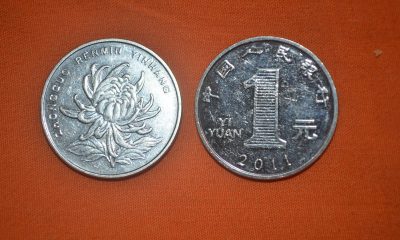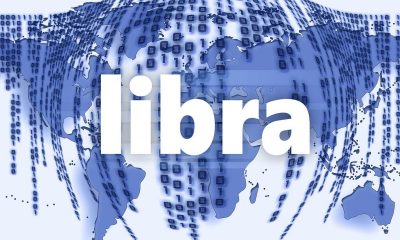Facebook’s Libra loses PayPal; Chinese whispers or regulatory chokehold?

Did PayPal hear the Chinese Whisper, and go amiss?
Libra was a unique sell. Primed as a “digital currency,” backed by a slew of government assets, operated on its own network, held on its own wallet, backed by companies that impact the world on a daily basis, with the ribbon of “banking the unbanked,” right at the very top. In theory, everything seemed right.
The problem was the company at the forefront. Facebook is not really the favorite when it comes to trust and money, and its learning that the hard way. From connecting strangers over a meme, launching a currency with the potential to upend the US dollar was a big leap, a leap over lawsuits, privacy concerns, and a US Presidential election, which the lawmakers did not remiss.
From the outset, Facebook was attacked furiously. Called a “national security threat,” “monetary policy manipulator,” and “data leaker,” the Menlo Park giant could not remove Libra from its shadow. And, as the regulators lampooned, others began to feel the discomfort.
WHITE FLAG or JUMP SHIP?
The 29-member Libra Association of which Facebook is an ‘equal part’ is noticeably feeling the unease of the regulators’ proximity. Now, one of them has thrown in the towel, or jumped ship, depending on how you look at things.
PayPal, the online payment provider, exited the Association last week in a shock decision that could have spillover effects. On 4 October, the Palo Alto-based company stated that it has decided to ‘forgo’ ties with the Libra Association, but levelled that it will remain ‘supportive’ of the ambitions of the project. Although support from the once-eBay owned payment service will be forthcoming, should Facebook require it, it does point to a fallout within the Libra Association.
Facebook, in reply, did not hold back either. In a statement released following PayPal’s exit, the social media giant stated that Libra requires a certain “boldness,” and “commitment” to the cause is more important than anything else. Addressing PayPal directly, Facebook closed with, “We’re better off knowing about this lack of commitment now, rather than later.”
The importance of being a part of the Libra Association cannot be understated here. PayPal is forgoing a huge opportunity. Hence, the severity of this exit is monumental. The Association is a 29 [now 28] member consortium that will oversee the “internal governance” of the digital currency and will have the authority to “change” the backing of the Reserve as well. The whitepaper reads,
“The association’s purpose is to coordinate and provide a framework for governance for the network and reserve and lead social impact grant-making in support of financial inclusion. The association’s membership is formed from the network of validator nodes that operate the Libra Blockchain.”
Libra plans on expanding its Association to 100 members, but PayPal’s discomfort does not solely stem from its share in it consortium dropping to less than a fourth of what it started with. The concerns run deeper.
COLLATERAL DAMAGE or SAVING GRACE?
At a time when the world is going through an economic clash between two superpowers, the importance of commerce over conflict is stark. From the coal industry to the gold markets, the ripple effects of the clash between the United States and China are spreading far and wide, and Libra, believe it or not, is caught right in the middle.
David Marcus, Head of Calibra, even called Libra the shining light that can shelter democracy from the clutches of China and their digital yuan.
Libra will feature prominent Western currencies [based on initial reports it would hone the US dollar USD, Euro EUR, Japanese Yen JPY, Singapore dollar USDSGD, and the Great British Pound GBP], evidently leaving out the Chinese Yuan [RMB] and with that, Beijing itself. In response to China, days after Libra was unveiled, it stated that it had been developing a People’s Bank of China [PBoC] digital currency that would be used by payment partners within the country.
So, the payments battle of this macroeconomic trade war became Libra, the digital currency of the West versus the Digital yuan, the CBDC of China, and Marcus, quite sportingly, sold it. Even though, Facebook would be [one of ] the last companies to be entrusted with the responsibility of being the harbinger of Western democracy, based on the current market scenario, it is positioned as such.
PERSONALLY MINE or FORCEFULLY YOURS?
Where in this mess does PayPal fit in though?
PayPal was caught asking itself a simple question, “Do my personal interests outweigh that of the larger goal?” Within the larger context of the trade war, the digital currency clash for the payments of the larger world and of the world’s currencies versus China, and the concentrated context of the regulatory pressure ramping down on Libra and its members, PayPal presumably decided to cut its losses.
On 30 September, days before the exit, the People’s Bank of China [PBoC] approved PayPal’s acquisition of a 70 percent equity stake in GoPay [Guofubao Information Technology], a domestic payment provider. Through this acquisition, as TechCrunch reports, the American payment company will be the “first foreign payment platform to provide online payment services in China.”
China, the fork in Libra’s plans, both as a principle and an implementation tool, probably has more to do with PayPal’s exit, than one might assume. An economy that has bold ambitions to become “cashless” in the next few years has been pushing the envelope when it comes to mobile payments, with WeChat pay and AliPay building their base for foreign success as well.
In the middle of the trade war and Libra, PayPal, it would seem, has decided to resist. Instead of securing 3.44 percent of the Libra consortium [as it stands] and seeing that share drop to 1 percent [when the consortium is expanded to 100 members] in a project that may be halted, if not completely scaled down owing to regulatory concerns, PayPal has gone for the sure-shot deal. Becoming a foreign payment player in the growing Chinese market is far more enticing to PayPal, from a pure cost-benefit perspective.
The coincidental and conflicting information of PayPal’s entry into China and its exit from Libra was addressed by Bobby Ong, Co-founder of CoinGecko, a cryptocurrency data aggregator. Not pointing to a direct cause and effect, Ong did share the suspicion of the immediate nature of the two stories. He told AMBCrypto,
“Paypal’s Libra Association exit came very shortly after it received an approval from People’s Bank of China to acquire 70% of GoPay.”
Another point to note in this regard is the exclusion of American Express, the NY-headquartered financial giant that became the first US card-based network to commence operations in China in November 2018. Notably, American Express is not present in the Libra Association, and its competitors Visa and MasterCard are.
MISSED OUT or LUCKY BREAK?
Libra is not aiming to be a little fish. Its ambitions are to be a global currency. Its drive, as emphasized by Facebook’s response to PayPal’s exit, is that Facebook believes that this project is something nobody wants to miss out on, PayPal especially. Being a veteran payments giant, PayPal knows and understands the opportunity it’s missing out on, but with the prospect of the growing Chinese market and regulators closing in on Libra, could this be a lucky break?
Long-shot opportunities with a small-share of the wealth and increased regulatory pressure, or focus on the new Chinese business. Siddharth Sogani, CEO of Crebaco, told AMBCrypto that Libra was PayPal’s “great experiment,” one that the payment provider did not want to take a gamble on. He stated.
“Supporting Libra seemed to be a great experiment but due to objections by banks and governments PayPal seems to have withdrawn because it cannot put its core business at stake.”
Other payment providers like Visa, MasterCard, PayU and Stripe, who should be pleased with PayPal’s exit and thereby their share of the pie increasing, are probably seeing this as a red flag. Prior to PayPal’s official pullout, the payment companies in the consortium, PayPal included, were reportedly ‘wavering.’
In their eyes, Libra is invariably pitting them against lawmakers, central bank chiefs and administration officials, a group that these companies have to be on the good side of.
The report added that the executives of the payments provider were “oversold” by Facebook on the degree to which the regulators were “comfortable” with the idea of Libra. Facebook’s privacy concerns of the past have also built a perception of a lack of ‘responsibility.’
Later this month, the Libra Association will host a meeting with its consortium members to solidify their membership. Each member company will pledge $10 million to the project, giving them the status of ‘validator nodes’ in the project. However, there is an option to delay the payment for the members to figure out the ripple effects of their association on their own operations.
Such an significant investment is bound to “sharpen the mind of any of the remaining 27 companies that are still on the fence,” stated Matt Baer, CEO of KeyoCoin, a travel-based digital currency on the blockchain. He told AMBCrypto,
“There’s no doubt that such a high profile departure will be felt like a nail in the side for Facebook and the Libra Association, but it’s too early to say if it’s also the first nail in the coffin for the currency itself. There is still plenty of confidence that the project will succeed, and a healthy number of supporters throwing their weight behind it, but any hopes that Libra will be a truly global currency are fading fast.”
MYCOIN or OURCOIN?
PayPal’s exit could also be a more selfish desire, not one concerning the Chinese market or the regulatory ease, but one concerning their own payment protocol. With several companies veering towards the world of digital currencies, either singularly-stable, quasi-stable or for internal purposes, these payment providers may be playing the learning game.
Kyle Asman, a partner at BX3 Capital, told AMBCrypto that the Libra process for payment-centric companies could be ‘walkthrough,’ rather than a ‘national security threat’ as lawmaker opine. The regulatory process, global tie-ups, association building and reserve backing that Facebook and the rest of the consortium members are witnessing is the perfect training ground for these companies. Leaving aside Facebook’s motto of “move fast and break things,” the companies are learning to “move slow, learn quick and get out.” Asman stated,
“I think Paypal and a few of the other payments companies specifically could be walking through the process with Libra to see what the process looks like so they can launch their own token once the opportunity presents itself and regulation is more clear. So I think we will see some companies hang around to see what they can learn from it, then duck out once it becomes time to make a financial commitment.”
Will PayPal’s exit from the Libra Association be a one-off making it the unfortunate one to miss out on the opportunity of a lifetime, or will it have jumped ship at the right time as regulators begin picking off company after company. No doubt, PayPal’s exit from the Libra Association, either for personal or collective reasons, sets a precedent, while concerns from regulators seem to be pouring in.
Each consortium member needs to be on the regulators’ good books, be it Uber, Andreessen Horowitz, Vodafone or Coinbase. The question is, how much are they willing to sacrifice to be a part of the ‘world’s global currency,’ and are they in it for that very reason, or does the cut run deeper?






